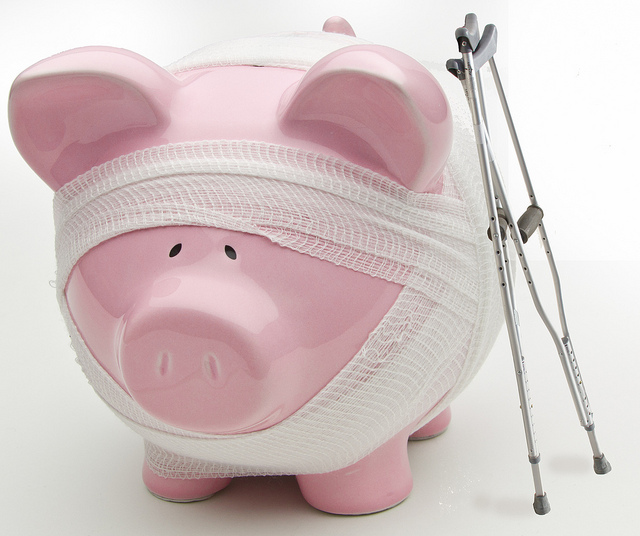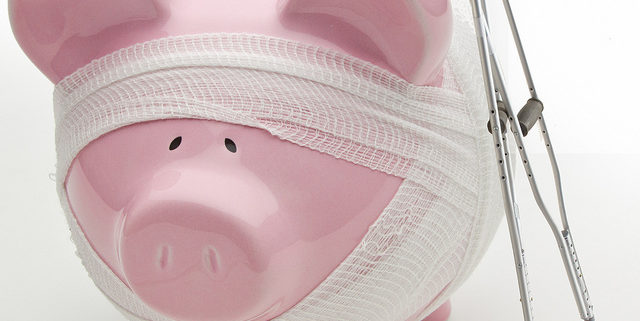Chapter 7 vs Chapter 13 Bankruptcy in California
 Bankruptcy is a powerful tool for getting your finances back on track. There are two main types of bankruptcy: Chapter 7 and Chapter 13. Which one is right for you?
Bankruptcy is a powerful tool for getting your finances back on track. There are two main types of bankruptcy: Chapter 7 and Chapter 13. Which one is right for you?
Chapter 7 Bankruptcy
Chapter 7 is also called “liquidation.” When you file under Chapter 7, the first step is to divide all of your assets into two groups: exempt and non-exempt. Exempt assets are protected and creditors can’t touch them. For example, California has an exemption that can cover up to $75,000 of equity in a home. To find the equity, take the value of your home and subtract the amount you owe on the mortgage. If it’s less than $75,000, your home is exempt. California offers two different systems of exemptions and you can choose which one best fits your needs.
Non-exempt assets, on the other hand, become part of your “bankruptcy estate.” They will be sold by the bankruptcy trustee and used to pay your creditors. If you have a large asset, like a home, that isn’t totally covered by the exemption, you may end up having to sell it. You’ll get the amount of the exemption back and the rest of the proceeds will go to your creditors. However, that will only happen if your equity is much more than the exemption. Most debtors are completely covered by the exemptions, so they don’t have to give up any property.
At the end of the Chapter 7 process, your remaining unsecured debts (like medical or credit card debt) will be “discharged.” That means they’re completely wiped out and you no longer owe those creditors anything. If you have secured debts, like a mortgage or a car loan, you’ll need to work with the bankruptcy trustee and the court to decide whether you want to give up that property or try to keep making payments.
Who Can File Chapter 7?
Because most debtors don’t end up paying any of their unsecured debts in Chapter 7, the courts limit it to the people that really need it. You’ll have to meet certain requirements in order to qualify. You’ll qualify automatically if your average income for the 6 months before you file is less than the state median income. For cases filed after November 1, 2016 in California, that’s about $4,300 per month for a single-person household. You can find the current median income numbers for different sizes of household here.
If you make more than the average income, you’ll have to pass the “means test.” The court will take your monthly income and subtract certain expenses to find your disposable income. Most of those expenses are based on national, state, and local standards – not your actual expenses. If your disposable income is low enough, you can still file under Chapter 7.
Chapter 13 Bankruptcy
If you don’t want to file under Chapter 7 or don’t qualify, you can file under Chapter 13. In that case, you’ll work with the court to come up with a payment plan based on your disposable income. As part of that payment plan, you’ll make up back payments on your secured debts and continue to make your current payments. Whatever part of your monthly payment is left over will go to your unsecured creditors.
In most cases, a Chapter 13 payment plan lasts for 5 years. At the end of that time, your remaining unsecured debt will be discharged and you’ll continue to make your regular secured debt payments.
In order to qualify for a Chapter 13 bankruptcy, you’ll need to show that your creditors will get at least as much as they would under Chapter 7. In other words, you’ll need to figure out what assets would not be exempt. Now compare that value to what your creditors will get under your payment plan. If they’ll get less under Chapter 13, you’ll need to file under Chapter 7.
Which Is Right For Me?
So which type of bankruptcy is best for you? The answer depends on your unique financial situation and needs. Chapter 7 is a great way to wipe out large unsecured debts, if you qualify. Chapter 13 is a good choice if you have assets that wouldn’t be exempt under Chapter 7, like a home with a lot of equity.
The best way to decide is to visit an experienced bankruptcy attorney for a consultation. They can help you evaluate whether bankruptcy is the right choice for you. If you decide that it is, they can help you decide which chapter will best meet your needs and goals. Finally, they can help you file your case, negotiate with creditors and the bankruptcy court, and handle all the logistics of the process.
Image Credit and License
Are you in search for a certified attorney to represent you?
Let us help you find one today!



